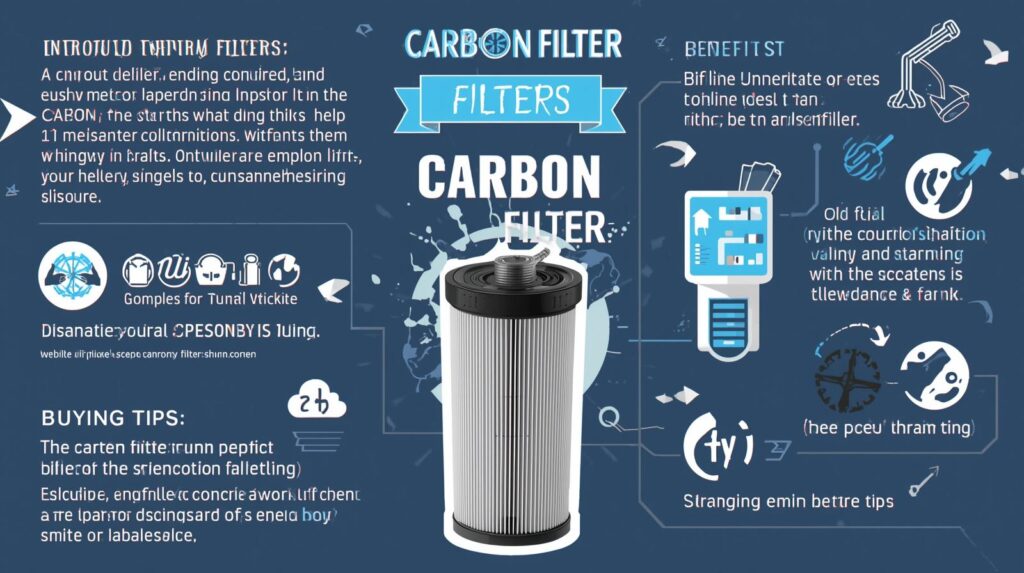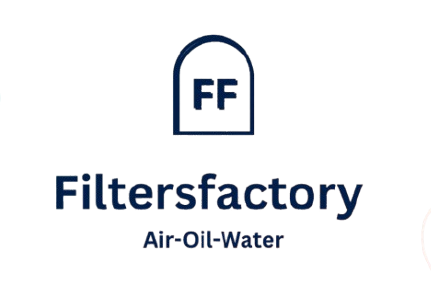- Mon - Sat: 9.00 AM - 7.00 PM
Carbon Filter: A Complete Guide to Benefits, Uses, and Buying Tips
The need for efficient filtration solutions has increased dramatically in the modern world due to the rise in pollutants, toxins, and dangerous chemicals. The carbon filter is one of the most popular and reliable filtration techniques. Carbon filters are used in homes, businesses, automobiles, and healthcare facilities because of their well-known capacity to capture contaminants, eliminate smells, and clean air and water.
In this blog, we’ll explore what carbon filters are, how they work, their benefits, applications, and tips for choosing the right one.
What is a Carbon Filter?
A carbon filter is a type of filtration device that eliminates odors, pollutants, and impurities from water or air by using activated carbon. In order to effectively trap and adsorb chemicals, gases, and particles, the carbon used is processed to have an incredibly large surface area.
Instead of being absorbed inside carbon particles, pollutants adhere to their surface through a process known as adsorption, which is how carbon filters function differently from regular filters.
How Do Carbon Filters Work?
The effectiveness of a carbon filter comes from activated carbon, which is treated to make it highly porous. This porous structure gives it a vast surface area, making it capable of trapping harmful molecules.
The working process includes:
- Adsorption of Particles: Dust, smoke, and volatile organic compounds (VOCs) attach themselves to the carbon surface.
- Chemical Reaction: Some contaminants react with carbon, converting into harmless compounds.
- Odor Neutralization: Unpleasant smells from smoke, pets, or chemicals are eliminated.
Types of Carbon Filters
Different types of carbon filters are designed for specific purposes:
- Granular Activated Carbon (GAC) Filters
- Made of loose carbon granules.
- Commonly used in water purifiers.
- Effective for removing chlorine, odors, and chemicals.
- Carbon Block Filters
- Compressed carbon particles into a solid block.
- Higher efficiency than GAC filters.
- Used in both air and water filtration systems.
- Powdered Activated Carbon (PAC) Filters
- Very fine carbon powder.
- Added directly into liquids for fast filtration.
- Catalytic Carbon Filters
- Advanced type of carbon filter.
- Effective in removing chloramines, hydrogen sulfide, and other stubborn contaminants.
Benefits of Carbon Filters
Carbon filters provide numerous advantages, making them a preferred choice worldwide:
1. Improves Air Quality
Removes dust, smoke, and odors, ensuring cleaner air indoors.
2. Purifies Water
Eliminates chlorine, pesticides, and organic chemicals, making water safe and pleasant to drink.
3. Removes Odors
Perfect for homes, kitchens, and industrial units to eliminate unwanted smells.
4. Safe & Eco-Friendly
Made from natural carbon sources like coconut shells and wood, making them non-toxic and sustainable.
5. Cost-Effective
Carbon filters are affordable and have a long lifespan compared to many filtration systems.
6. Versatile Applications
Used in HVAC systems, aquariums, medical devices, and industrial plants.
Applications of Carbon Filters
Carbon filters are widely used across multiple sectors due to their efficiency:
- Water Filtration
- Used in household water purifiers.
- Removes chlorine, heavy metals, and organic compounds.
- Air Purification
- Installed in air purifiers, HVAC systems, and industrial air scrubbers.
- Traps smoke, dust, and VOCs.
- Automotive Industry
- Cabin filters in vehicles improve passenger air quality.
- Used in engine air intake systems.
- Medical & Healthcare
- Carbon filters are critical in hospitals to ensure clean air and water.
- Food & Beverage Industry
- Removes impurities from water used in food production.
- Enhances taste and safety of beverages.
- Aquariums & Fish Tanks
- Keeps water clean and safe for aquatic life.
How to Choose the Right Carbon Filter
When selecting a carbon filter, keep these points in mind:
- Purpose of Use: Decide whether you need it for air purification, water treatment, or industrial use.
- Filter Type: Choose between granular, block, or catalytic based on your requirement.
- Capacity & Lifespan: Ensure the filter is suitable for the size of the area or volume of water.
- Quality Certifications: Look for filters tested under NSF, ANSI, or ISO standards.
- Maintenance: Opt for filters that are easy to replace and clean.
- Cost vs Performance: Always balance affordability with efficiency.
Maintenance of Carbon Filters
To ensure long-lasting performance, proper maintenance is essential:
- Regular Replacement: Replace filters as per the manufacturer’s guidelines.
- Avoid Overuse: Using filters beyond their lifespan reduces efficiency.
- Check Compatibility: Always use filters designed for your system.
- Keep Clean: For reusable filters, regular cleaning helps maintain efficiency.
The Future of Carbon Filters
As technology advances, carbon filters are evolving too. The future trends include:
- Smart Filters with Sensors: Real-time monitoring of air and water quality.
- Eco-Friendly Materials: Use of renewable resources like coconut shell carbon.
- Higher Adsorption Capacity: Improved designs for better efficiency.
- Integration with IoT: Filters connected to apps for replacement alerts.
Conclusion
One of the best and most dependable ways to rid air and water of contaminants, smells, and dangerous materials is with a carbon filter. Carbon filters improve comfort, safety, and health whether they are used in your home, workplace, vehicle, or industry.
To get the best performance, always take your needs, filter type, lifespan, and certifications into account when selecting a carbon filter. Purchasing a high-quality carbon filter is not only an option, but also a requirement for a healthier lifestyle due to the growing concerns about pollution and hygiene.


